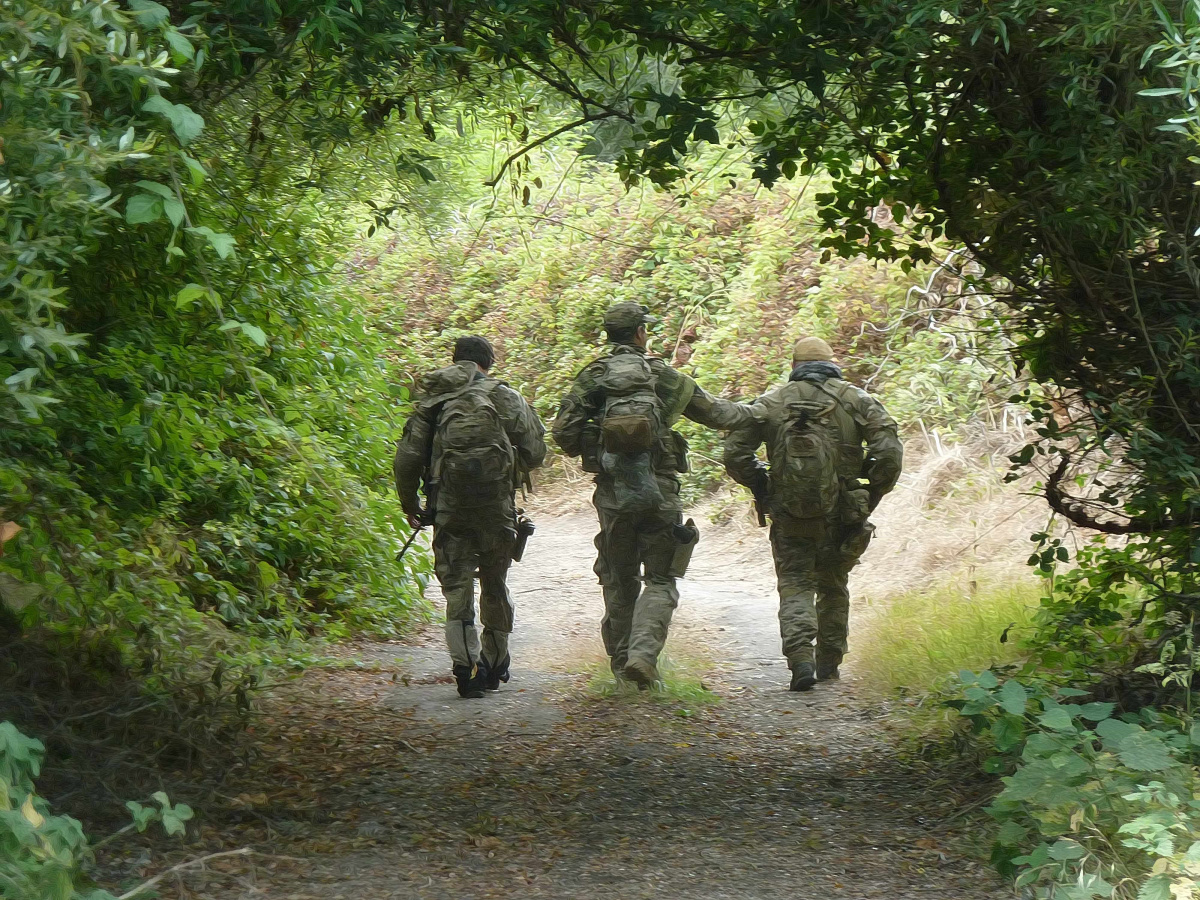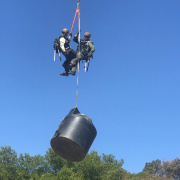February 17, 2020 - WASHINGTON – The Bureau of Land Management announced today three of its law enforcement professionals were recognized for their outstanding work to end marijuana cultivation on America’s public lands. BLM-California Ranger David Moffett and Special Agents Rafael Moreno and Alberto Pena received recognition for their passion, commitment and hard work as part of the California Central Valley High Intensity Drug Trafficking Area program, which recently won White House accolades for Outstanding Marijuana Investigative Effort over the last year.

On Feb. 6, 2020, the White House Office of National Drug Control Policy recognized individuals and initiatives of HIDTA programs nationwide for their extraordinary efforts in reducing drug trafficking and production in the United States. Currently, 33 HIDTAs in 50 states, Puerto Rico, the U.S. Virgin Islands, and the District of Columbia, provide assistance to Federal, state, local, and tribal law enforcement agencies operating in areas identified as critical drug-trafficking regions in the United States.
“Illegal marijuana cultivation on America’s public lands endangers wildlife, ravages the environment, and puts land users like hikers, hunters, and fishermen at grave risk. Chemicals used in cultivation leave a toxic mess that can take decades to clean up,” said BLM Deputy Director for Policy and Programs William Perry Pendley. “This award recognizes these dedicated officers and the BLM’s continued commitment to multi-jurisdictional efforts to end marijuana cultivation and trafficking on our nation’s public lands.”
In 2019, while supporting the Central Valley HIDTA in California, Ranger Moffet and Special Agents Moreno and Pena participated in the successful Campaign Against Marijuana Planting initiative. In collaboration with Federal, state, local and tribal law enforcement partners, CAMP teams conducted 346 marijuana enforcement operations in 34 counties, executing more than 120 search warrants. CAMP teams seized 953,459 marijuana plants under cultivation and an amazing 25.4 tons of processed marijuana. Teams arrested 148 drug trafficking organization members and removed 168 firearms from the hands of drug traffickers. Teams also mitigated damage to over 11,000 acres of public land by removing more than 19 tons of cultivation infrastructure, 760 miles of plastic irrigation lines, 260 propane tanks, and 124 automotive batteries. Additionally, CAMP teams removed more than 21 tons of fertilizer, 52 gallons of conventional pesticides, and nearly 18 gallons of highly toxic, restricted-use poisons.

The teams’ sustained, extraordinary success is a testament to the effectiveness of multi-jurisdictional law enforcement efforts that incorporate innovative investigation techniques and enforcement operations to combat illegal marijuana production and trafficking.
Illegal marijuana growing operations, many of which are on public lands, have a tremendously negative effect on the environment and ecosystem. Cultivators pack into the backcountry, often cutting new trails and then slashing plots of land for water-intensive marijuana cultivation. While there, cultivators build extensive irrigation networks, sometimes diverting streams and rivers, and frequently impacting entire water systems.
In addition to clearing large amounts of vegetation and diverting water sources, growers use herbicides, pesticides, and rodenticides indiscriminately, causing algal blooms, nutrient poisoning, and even killing wildlife up and down the entire food chain. All of these issues pose safety risks to both recreationists and BLM personnel responsible for enforcement, clean up, and eventual mitigation, making the eradication of such operations on public lands a critically important undertaking.
Source: BLM








